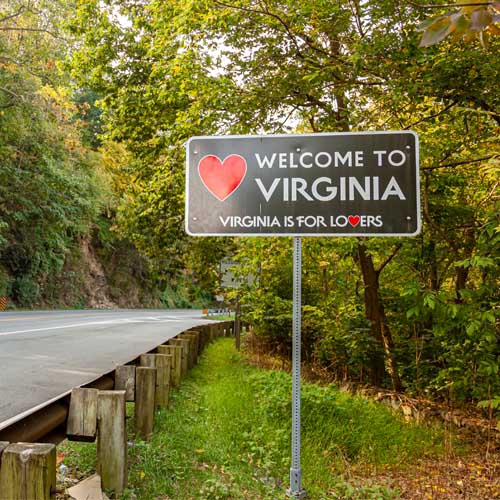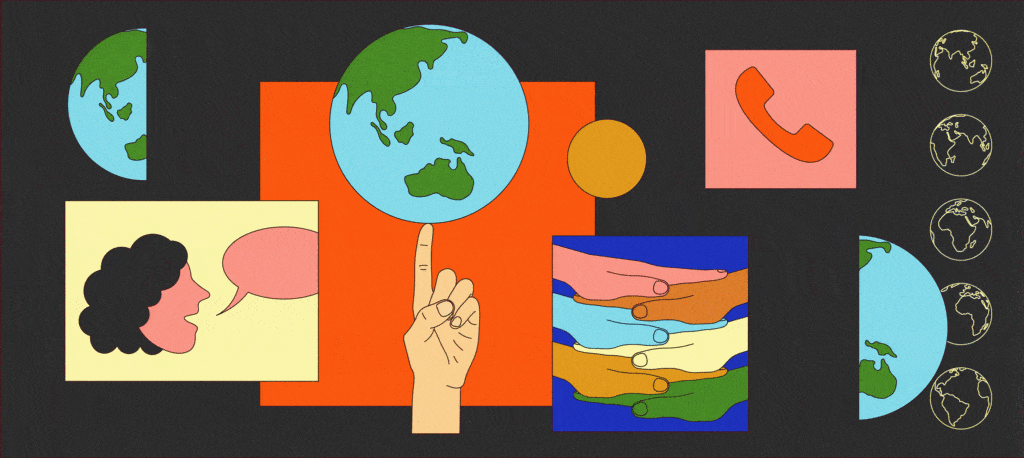If there’s one thing Esteban Gast knows, it’s that the more serious a topic is, the more necessity there is for humor. And at this year’s Sundance Film Festival, where climate change took center stage for a full day of programming, Esteban brought that philosophy to life.
We sat down with Esteban to talk about his role as Gen180’s comedian-in-residence, his experience at Sundance, and why humor might just be one of the most effective tools in the climate movement. What follows is a conversation about comedy, advocacy, and the delicate dance of making people laugh about climate doom and gloom—while bringing levity to the crisis.
Gen180: Let’s kick it off with you telling us about what the Comedian-in-Residence role is all about. How long have you been doing it, and how did you get into it?
Esteban Gast: I’ve been Gen180’s comedian-in-residence now for… wait, hold on. I think this is my fourth year? That feels wrong, but also right. I mean, I view myself as a guy who bounces around, but yeah, four years seems accurate. The role came out of the entrepreneurial spirit of Generation180 and particularly the vision of their former Executive Director, Wendy Philleo. It was born out of a question: What does the climate advocacy world need? And how can entertainment, storytelling, and humor drive narrative change in bringing more groups to the table?
I come from an educator background—I’ve run study abroad programs, built curriculum, and led creativity workshops. So, when Gen180 approached me, it was about blending all of that into a role where I could use comedy to engage people in a deeper way. Since then, I’ve helped run programs like the Climate Comedy Cohort, co-directed with American University, and Gen180’s Climate Cultura, making sure we’re tapping into artists, under-engaged communities, and cultural shifts to drive the climate conversation forward.
Gen180: And now you’ve found yourself on stage at Sundance. How does that happen?
Esteban: The world moves fast! But honestly, it’s a testament to how Generation180 and the climate comedy movement have been a step or two ahead of mainstream culture. We’ve been carving out this space where art, humor, and climate advocacy intersect, and now people are finally seeing the value in it and how it resonates with diverse audiences.
Sundance was an interesting moment. This was the festival’s first time dedicating an entire day to climate programming. In previous years, they had done one-off events, but this time they went all in. That’s exciting, but also a little like, what took you so long? The day was held at the Impact Lounge, where each day is dedicated to a different cause. Our day—the Earth Lounge—was produced by organizations like the Hollywood Climate Summit, which helped put together the event and invited us to participate.
My role at Sundance was to host a series of conversations, moderate panels, and bring some levity to a day packed with heavy discussions. And it was packed—standing-room only the whole time. Which tells me that people are hungry for more ways to talk about climate that don’t feel doom-laden.
Gen180:You said it felt like medicine. What do you mean by that?
Esteban: This was right after LA’s wildfires last month and the inauguration of a president who continues to politicize climate. So yeah, it felt like medicine. It was a moment where people came together, affirmed that they weren’t crazy for being scared, and reminded each other that we’re in this together and your energy matters – now more than ever.
This was right after LA’s wildfires last month and the inauguration of a president who continues to politicize climate. So yeah, it felt like medicine. It was a moment where people came together, affirmed that they weren’t crazy for being scared, and reminded each other that we’re in this together and your energy matters – now more than ever.
That’s what comedy does best. It cuts through the noise. It helps people process. There were jokes, of course, but not in a way that was dismissive. The best comedy in moments like this punches up—it pokes at the systems, the contradictions, the absurdities of how we handle crises. One of my jokes that landed well was about how LA’s emergency response statement was so poetic. In a city full of professional writers, some of these public service announcements about evacuations sounded like Smokey Bear quoting Joan Didion. It wasn’t making fun of the tragedy—it was making fun of the disconnect between the government’s messaging and the urgency people felt on the ground. And that’s a crucial distinction.
Gen180: That leads to an interesting question: why do you think climate groups, and even spaces like Sundance, have been slow to embrace comedy?
Esteban: I think there’s a misconception that joking about something means you don’t take it seriously. But in reality, humor is a way to process serious things. When we don’t joke about something, we’re giving it too much power. We’re letting fear dictate the conversation.
I also think the climate movement has been bullied a lot. For decades, environmentalists have been painted as tree-huggers, alarmists, or out-of-touch elites who just want to save the trees. And instead of fighting back with humor, the movement has often taken itself too seriously. The result? It becomes harder to connect with people outside the activist bubble.
Sundance and the climate space, in general, are starting to lean into comedy more, but cautiously. And you could see the hesitation—like, is this okay? But the truth is, comedy makes climate messaging better. It makes it more accessible. The best comedians can take complex issues and cut straight to the core in a way that sticks with people.
Sundance and the climate space, in general, are starting to lean into comedy more, but cautiously. And you could see the hesitation—like, is this okay? But the truth is, comedy makes climate messaging better. It makes it more accessible. The best comedians can take complex issues and cut straight to the core in a way that sticks with people.
Gen180: That’s interesting, because a lot of climate advocates still believe that if people just knew the facts, they would act. But we know that’s not how humans work.
Esteban: Exactly. If facts alone were enough, we wouldn’t still be arguing about whether climate change is real. Facts don’t change minds—stories do. Feelings do.
Look, the academic crowd who love facts? We’ve got them. They’re already in. The question is: who else do we need to reach? The answer isn’t more PowerPoint presentations on PPM (parts per million) air pollution levels. The answer is messaging that resonates with different audiences—teachers, comedians, artists, people who have never seen themselves in the climate conversation before. That’s what I love about using comedy for climate advocacy. It’s an invitation. It tells people: Hey, this conversation is for you, too.
Gen180: Final thoughts?
Esteban: Climate advocacy can’t be a gatekeeping club for people who already “get it.” We should be celebrating every entry point. Some people connect through science. Others connect through faith. And some people—like me—connect through humor.
At the end of the day, we need as many people in the movement as possible. If someone makes a clumsy joke about climate and it gets people talking, that’s still a win. The more we embrace different ways of communicating, the stronger this movement becomes. And if that means we laugh a little more along the way? Even better.















